Dill water
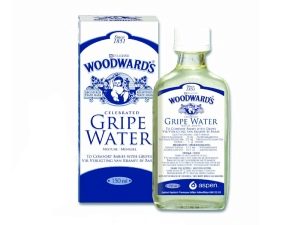
Many people think that dill water is made from the usual dill, however, this is misleading. In the preparation of dill water is used fechel, or rather its essential oil, or dill essential oil. The useful properties of the product and how to cook it at home will be discussed below.
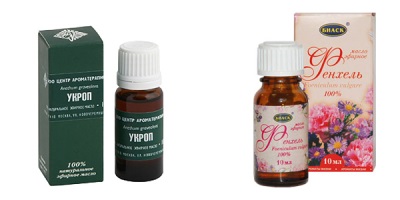
Beneficial features
Dill water has a number of useful properties:
- helps to eliminate bloating in babies;
- has a sedative effect;
- helps relieve stress;
- soothes pain in the stomach and intestines;
- dilates blood vessels;
- improves secretion;
- has a bactericidal effect;
- used as an anti-inflammatory agent.


Indications for use
Most often, dill water is used in the treatment of diseases of the gastrointestinal tract in children and adults.
Pediatricians strongly advise treating flatulence, colic or stomach cramps in babies with this remedy. For adults, the application is similar. For diseases of the digestive tract, spasms and flatulence, dill water is the right way to treat.
Other medicinal properties:
- Due to its vasodilating properties, dill water is widely used to treat a number of heart diseases.
- It also contributes to a more intense sputum production in bronchitis and other infections.
- It is useful for women to take dill water to increase lactation and normalize the menstrual cycle.
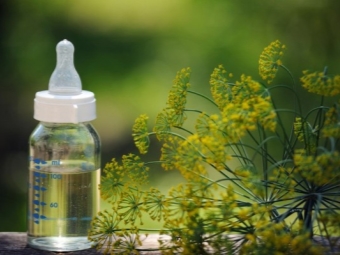
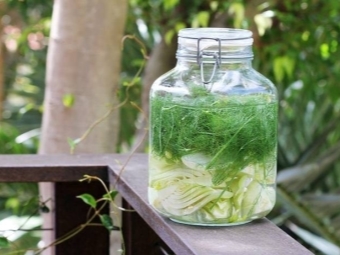
Contraindications
Dill water is not recommended for use in the following cases:
- with personal intolerance to fennel and its components;
- with increased sensitivity to the components of the drug;
- when allergic reactions occur.
With caution, dill water should be used at reduced pressure, as it can lower it even more.
Harm
Side effects of dill water were identified in isolated cases and included:
- red spots on the skin;
- urticaria;
- itching;
- pressure drop.
How to brew at home
with fennel
Dill water is not always found in pharmacies, but it can be easily prepared at home. For this:
- pour a few grams of dried and finely chopped fennel seeds into a container;
- pour them with a small amount of boiling water;
- keep the solution in a water bath for twenty minutes;
- infuse the mixture for forty-five minutes;
- filter.
You can use ready-made fennel essential oil. To do this, 0.5 mg of oil is dissolved in a liter of water.
You can store dill water prepared in this way for up to 30 days in the cold. Before you use it inside, the solution must stand in the room and warm up to room temperature.
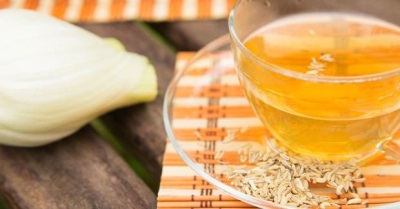
with dill
There are situations when fennel seeds are simply not available.
You can also use ordinary dill seeds:
- a teaspoon of seeds pour 200 ml of boiling water;
- let the mixture brew for an hour;
- filter.
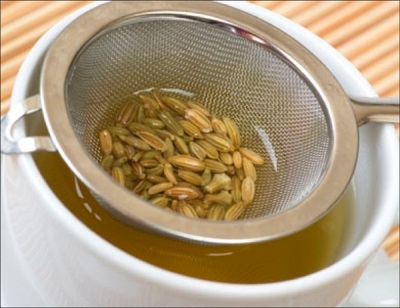
dill tea
Dill tea can serve as an analogue of dill water for young children. To do this, chop the leaves of the plant and pour a tablespoon of herbs with half a glass of boiling water. The mixture is also infused for about an hour. After it is filtered, cooled and used as dill water.
If the child is less than a month old, then only fresh dill water is used to treat intestinal colic. When preparing it, you need to take filtered water. The dishes are preliminarily doused with boiling water.

Dosage for newborns
The amount of dill water for a child depends on the method of feeding:
- If the baby is breastfed, then you can give him the drug with a spoon.
- For those who are bottle-fed, water is collected in a bottle. But you can also give it with a spoon.
Reception of dill water is carried out before feeding the child.
If he does not want to drink dill water, you can add some breast milk to it to make it taste more pleasant for the baby.


When first taken, start with one teaspoon before feeding three times a day. It is worth watching how the baby will react to dill water. If the reaction is positive and there is no allergy, then the number of doses increases to six times a day.
With the improvement of the baby's well-being and the elimination of the cause of the disease, you can stop taking dill water.


















I make dill water with fennel myself. Espumizan is still less natural, with such water it is more comfortable